Well, not zombie-zombies, but simply subjugate them to your will. There are a number of parasites that can have such a strong effect on the nervous system that their owner becomes simply a half-vegetable. 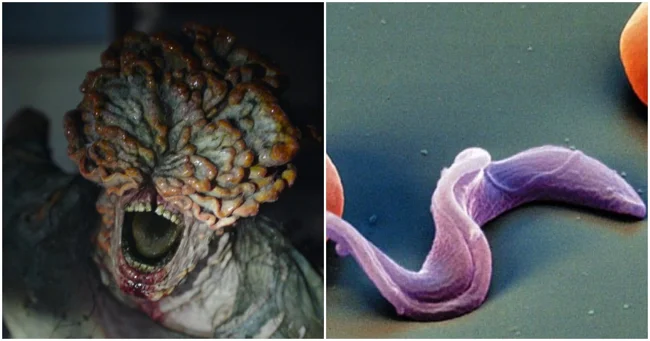
This is more common in the wild, but can something like this spread to humans or cause a real apocalypse in the world?
There are, for example, zombie snails.
The provocateur of zombie behavior is leukochloridium paradoxicalis - a flatworm that is considered a parasite of gastropods and passerine birds.
This creepy worm was discovered by German anatomist, pathologist and artist Carl Gustav Carus in 1835. 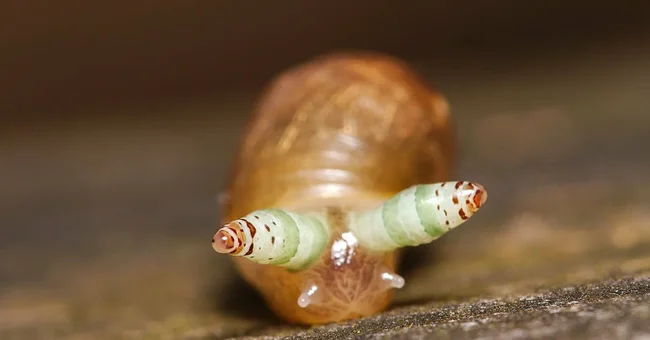
It can reach a length of up to 2 cm and a width of up to 1 mm. To end up in the bird’s body, the parasite must grow, and then the following happens: the amber snail crawls on the grass, eats the worm’s eggs along with it, and larvae rapidly develop in the mollusk’s body, which become sporocysts in the liver. Having passed through the belly, they go to the snail’s head, and then grow into its horn (or both at once), gradually becoming larger and turning into green worms with black eyes at the end (or beginning) of the body.
This parasite subjugates the snail, forcing it to constantly crawl out into open spaces. Even in the dark, the sporocyst drags the snail towards the light, constantly poisoning it with toxins and the mollusk simply does not understand the perception of the degree of illumination. A snail wandering in the open becomes prey for birds, which are lured by its green horns.
And once inside the bird, the adult worm clings to the mouth and abdominal cavity and lays eggs. With the birds' droppings they end up on the ground again and so on in a circle.
So far, not a single person has been reported affected by leukochloridium. 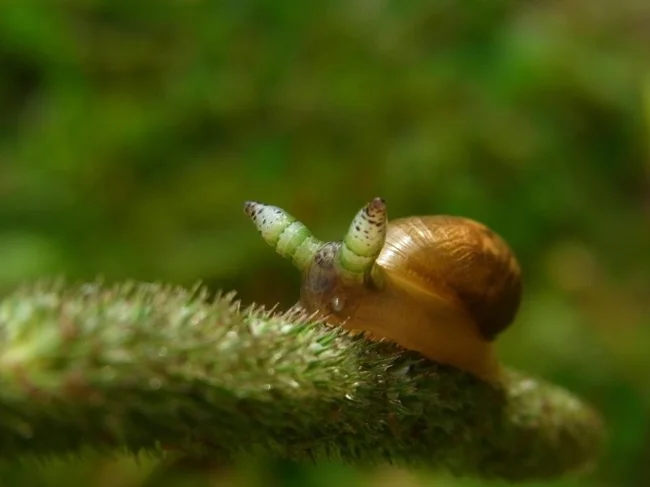
But there were cases when other parasites, usually living in the body of an animal, accidentally ended up in the human body and subjugated it.
Situation: an ordinary child or teenager who had perfect vision begins to rapidly lose it, for no apparent reason.
This phenomenon was discovered by Irish parasitologists from Trinity College (Dublin). The parasitic roundworm Toxocara canis often settles in the dog’s body, but it can also end up in humans. Moreover, it is enough to simply stroke the animal and then touch the mucous membranes. Children often put their fingers in their mouths, so there is a high risk of children getting this parasite. 
The dog's intestines are the best home for Toxocara. It develops and grows there, and while the animal is growing up, it is at rest. But as soon as the parasite enters a person, it stops developing there and begins to wander throughout the body, actively trying to occupy the highest point possible. For a dog it is the back, but for a person it is the head. Having settled in the brain, Toxocara affects the optic nerve. Irish scientists also found that the worm influences the child in this way so that he is eager to spend more and more time in places where there are many infected dogs in order to pick up more parasites.
If the unfortunate person’s brain is severely and extensively damaged, he may become weak-minded and completely lose his memory. 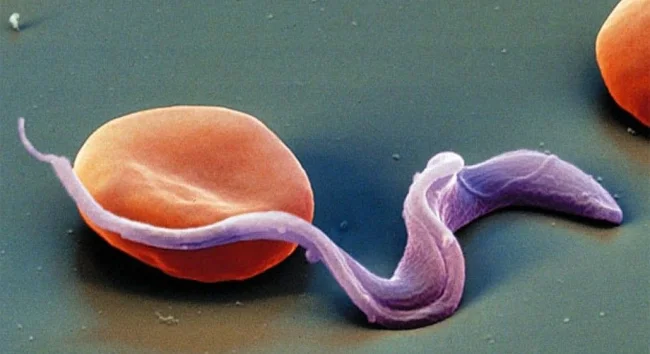
Danger also lurks in other pets - cats.
The single-celled organism Toxoplasma gondii usually attacks the central nervous system in mice, causing them to run towards the scent and right into the paws of a cat. In a cat’s body, cysts miraculously multiply and then leave her body, and the animal doesn’t even notice it.
But once in the body of another mammal (a person, for example), cysts, as a result of asexual reproduction, can infect tissues and remain there until the death of the owner. At the same time, they influence him and make him also “love” the cat’s smell. This was discovered by behavioral scientist Ajay Vyas from the Nyan Technological University in Singapore. 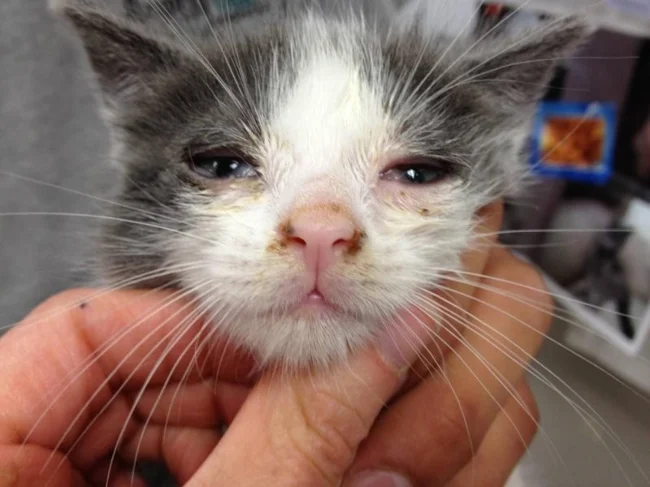
Vyas conducted a series of experiments and found that toxoplasma cysts prefer the “home” where more testosterone is released, because this hormone is used in the synthesis of the toxin.
It would seem... Well, a person begins to love cats more, so what?
0 comments
